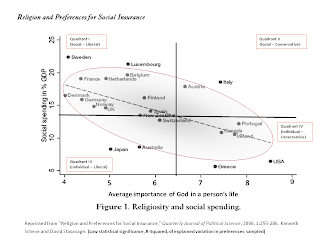Came
across a Bloomberg news article that used the Gini index to measure US
metropolis for wealth distribution. The article ranked the top 10 Most
Unequal US Big Cities based
upon the wealth distribution index which reminded me of the ECMAnalyst's
conducted Census evaluation creating the Development Metric index using Percent
US Economy and Percent US Population for the 100 largest US metropolitans. A
different measure of US cities; nonetheless, both are intriguing evaluations of
development. For example, Miami, FL was ranked as the most unequal city in the
US but on the development index it is ranked 55th by development contribution
to the US economy. Concentrations of wealth are likely attributable to basis of
development in leisure, tourism, Latin America gateway, and entertainment.
Neither measurement considers demography of distribution but it is largely
inferred in Gini coefficient indexing. The constructs of the primary industries
for a metropolitan are indicators of predictability for wealth distribution.
The only metropolitans in the top 10 Unequal US Big Cities that
are also top 10 metropolis of the Development Metric are Washington, DC, New
York City, and Boston, MA. It is both alarming and informative with Washington,
DC being the center of U.S. and international politics with economic bases in
legal and government activities setting policy for the country. And New York
City, the largest metro population, adding confirmation to communities feeling
economically "locked out" from the city's and the nation's progress
primarily from decision making within the region's largest industry being
finance (Wall Street) and Boston, MA mutual funds financial services plus
educational services economy components. California has two metrpolitan areas
in the top five of the Development Metric largely due to the computer and
digital technology industry but neither are reflected in the top Gini
coefficient index of wealth distribution of Most Unequal US Big Cities.



























